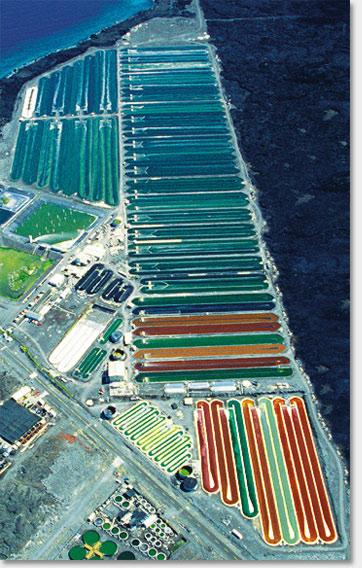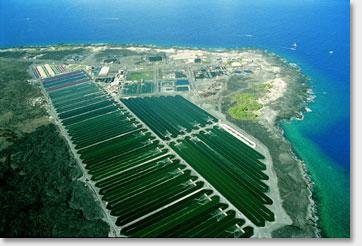Trading as MicrOrganics UK
Unit 7a Hillsdown Farm
Birch Grove Twyford Lane, Wychcross
East Sussex, RH17 7DH
www.MicrOrganics-uk.com
VAT REG.: GB 679 9445 57
PAC Corporate Ltd.
Trading as MicrOrganics UK
All Rights Reserved

Oxygen is, of course, important to life, but like most things there are good and bad aspects of it. While oxygen is vital for metabolism, when it combines with complex metabolic molecules in the body it produces things called free radicals.
Poor diet, strenuous exercise, pollution, and bacterial infections can all cause a rise in free radicals. The stress levels of modern living, pollution and mass produced food, as well as poor lifestyle and diet tend to increase the amount of free radicals in the body to dangerous levels. The result is cellular damage causing premature aging, wrinkles, bad skin, black rings under the eyes and sometimes serious illnesses.
Anti Oxidants are a generic term for nutrients that mop up free radicals in the body and neutralise them. Many antioxidants are Vitamins and have multiple benefits, such as vitamin E and vitamin C, but the best anti oxidants are the carotenoids.
Carotenoids are the most powerful anti oxidants known. Carotenoids are what give plants their colour. The most powerful carotenoid is Astaxanthin, the next most powerful is Beta Carotene. On this website you will find a lot more information on both these important anti oxidants. Spirulina is the richest known natural source of beta carotene.

Spirulina has a wide spectrum of carotenoids, many have not been investigated for their benefits, the most important ones that have are:
Spirulina is the richest known natural source of Beta Carotene.
Beta Carotene is a precursor to vitamin A and has many possible health benefits.. Beta-Carotene can be converted by the body into retinol is referred to as provitamin A carotenoids. Hundreds of different carotenoids are synthesized by plants, but only about 10 % of them are provitamin A carotenoids.
Beta-Carotene is a powerful anti-oxidant helping the human body in many ways, it's an Anti Oxidant and possible protector of cells.
Recent reports show natural Beta-Carotene is important in the formation of bones and teeth. No vitamin overdose can occur with natural Beta-Carotene. About two decades ago, it was reported that beta carotene offered a possibly notable measure of photoprotection to individuals with porphy.
Beta-Carotene is an antioxidant and boosts the immune system.
Beta-Carotene is often low during the more advanced stages of HIV. Supplementation of 300,000 IU daily may help increase the number of CD4+ cells found, CD4+ cells are a type of white blood cells that are low in AIDS patients.
Low Beta-Carotene levels are often associated with the development of lupus. Taking a liquid supplement may help ease some of the arthritic problems associated with this condition. Eating foods with beta carotene also lowers the risk of macular degeneration.
Vitamin A is a major source of beta carotene and has also been shown to reduce the risk of cataracts. The most common Beta-Carotene supplement intake is probably 25,000 IU (15 mg) per day, though some people take as much as 100,000 IU (60 mg) per day.
Zeaxanthin is a bioflavonoid (or flavonoid), which is a type pigment found in almost all coloured plants fruits, and vegetables. Bioflavonoids provide the body with anti-inflammatory and antioxidant protection, and are one of the main reasons fruits and vegetables are so healthy to eat. Zeaxanthin belongs to a group of bioflavonoids known as carotenoids, a group that is further subdivided into two groups: carotenes and xanthophylls. Zeaxanthin is one of the xanthophylls, which are found most abundantly in dark, leafy green vegetables, and are crucial to the good health of the eyes. The retina of the eye actually contains a lot of zeaxanthin, which is why it is so important to include this carotenoid in your diet.
Zeaxanthin helps protect the eye from ultra-violet (UV) damage, and prevents free-radical damage to the retina and the lens of the eye that is associated with diabetic retinopathy, macular degeneration, cataracts, and gl.

Cryptoxanthin, also known as beta-cryptoxanthin, is a member of the carotenoid family, a group of flavonoids that provide colour and flavour to fruits and vegetables. Carotenoids are proven antioxidants, and they protect the body from free-radical damage.
Like alpha- and beta-carotene, cryptoxanthin is a powerful
antioxidant that can be converted to active retinol, or vitamin A, in
the body. Vitamin A is crucial to the maintenance of healthy vision,
reproduction, and body tissues.
Phycobiliprotein has been recently reported to exhibit a variety of pharmacological properties. In this regard, antioxidant, anti-inflammatory, neuroprotective and hepatoprotective effects have been experimentally attributed to Pc. When it was evaluated as an antioxidant in vitro, it was able to scavenge alkoxy, hydroxyl and peroxyl radicals and to react with peroxinitrite (ONOO-) and hypochlorous acid (HOCl).
1. The nutrient could help ward off the effects of bad cholesterol,
whilst also keeping arteries clear.
2. The nutrient may help combat arthritis and osteoarthritis aches.
Lutein is a potent antioxidant, and, because of this, can counter free radical damage.
Lutein is concentrated in the retinas of your eyes and is necessary for good vision. A diet rich in lutein may lower your risk of developing cataracts and macular degeneraton. It works best in synergy with other nutrients, particularlly zeaxanthin and the mineral zinc, another reason for taking this in a food form, such as Spirulina.